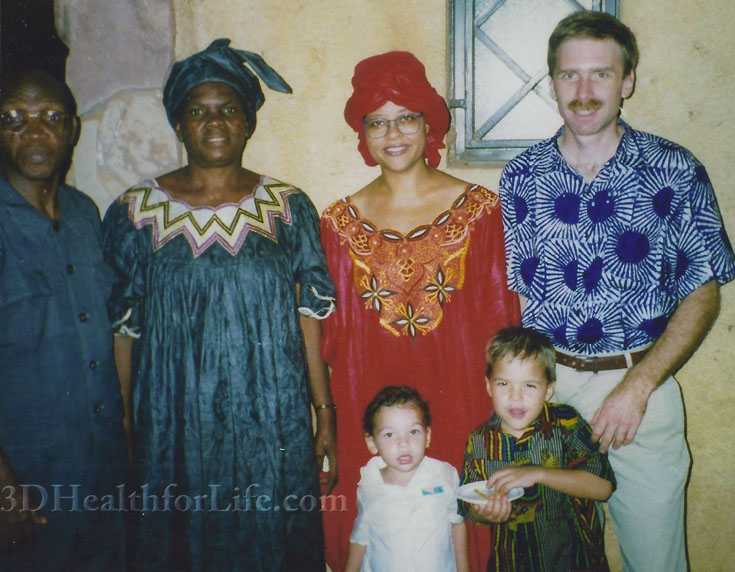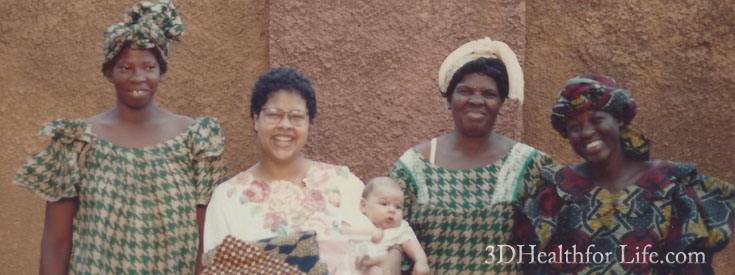Just a random post today on health as a fundamental aspect of being…
I was thinking back to the 6 years our family spent living in Bamako, Mali, West Africa. Greetings were a big thing. Your ability to greet properly set the tone for every other aspect of your relationship with someone. If you went down the street to the corner store, you were obligated to greet pretty much everyone along the way. When you got to the store, you had to properly greet the shopkeeper before asking for a package of vanilla sugar, margarine, pins, or whatever you went there to buy. If you failed to greet properly, you could be seen as rude, unfriendly, or uncaring.
“I ni sógóma,” Good morning, you would begin, when addressing someone who was alone. The usual response from another woman (yes, how you respond is gender specific) would be, “nse i ni sógóma.” You would then ask, “how are you?” to which she would respond with “no trouble here” or “fine.” So far it’s pretty much the same as here in America. But if this is a casual acquaintance you aren’t done yet. You must also ask, “How is your father,” “How is your mother,” “ How are your children [ or siblings],” and then they repeat this whole set of questions back to you for your responses. This is pretty much the minimum set of questions that would be considered respectful for a brief encounter.
On the other hand, if you know this person well, you must extend the greetings in proportion to the depth of your relationship to them. The closer they are, or the more respect you wish to show, the longer the greetings. They can go on for up to 5 minutes and include inquiries such as, “How did you sleep?,” “Are you well?,” “How is your grandfather?,” “How is your grandmother?,” “how is the household?,” “Is anyone sick?,” “How is your oldest sister?,” “How is your youngest brother?,” “Are you in good health?,” and so on.
 As I was reading the Bible story of Joseph, it struck me that this greeting pattern probably goes back a very long ways in history. You might remember how Joseph’s brothers sold him into slavery in Egypt and that years later, when he was 2nd in command in the land, they came begging for food. When he finally revealed himself to them he quickly started asking questions about the family.
As I was reading the Bible story of Joseph, it struck me that this greeting pattern probably goes back a very long ways in history. You might remember how Joseph’s brothers sold him into slavery in Egypt and that years later, when he was 2nd in command in the land, they came begging for food. When he finally revealed himself to them he quickly started asking questions about the family.
Gen 43, verses 27 and 28 say, “And he asked them of their welfare, and said, Is your father well, the old man of whom ye spake? Is he yet alive? And they answered, Thy servant our father is in good health, he is yet alive. And they bowed down their heads, and made obeisance.”
Without health, life can be pretty miserable. Publilius Syrus once said, “Good health and good sense are two of life’s greatest blessings.” I think that is why God says to us today, “Beloved, I pray that all may go well with you and that you may be in good health, as it goes well with your soul.”
So let me ask you, “How is your health today?”
